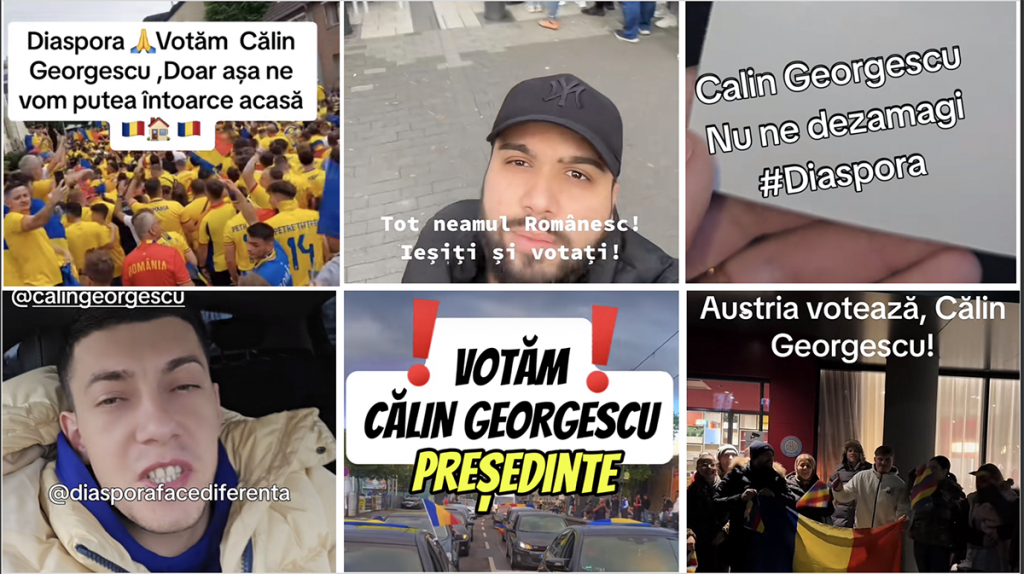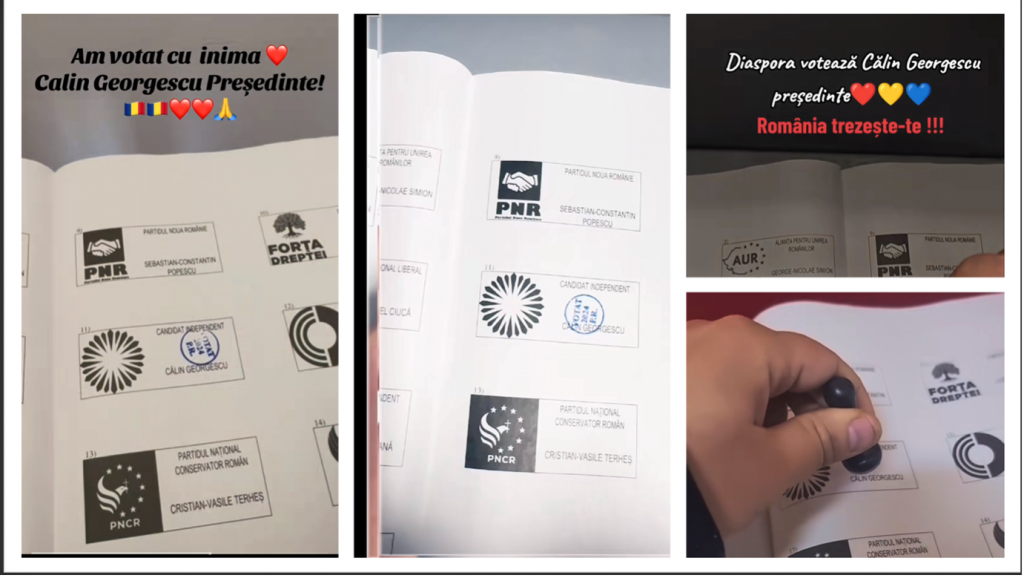In an unexpected twist to Romania’s 2024 presidential election, Călin Georgescu, virtually unknown a year ago, has emerged as a serious contender. Georgescu's ascent has been marked by antisemitic rhetoric, anti-Western discourse, and a sophisticated disinformation strategy. This, argues Mimi Mihăilescu, reveals the vulnerabilities of modern politics to social media manipulation
When Călin Georgescu declared his candidacy, he was little more than a fringe figure with prior ties to the far-right AUR (Alliance for the Union of Romanians) party. Known for his antisemitic and anti-Occidental discourse, Georgescu’s rhetoric initially appealed only to a narrow segment of Romania's electorate. While his alignment with AUR initially branded him a fringe figure, his decision to run as an independent allowed him to reframe his narrative. No longer tethered to a single party, Georgescu emerged as a unifying figure for those seeking an antiestablishment candidate.
What truly set Georgescu apart was his ability to capitalise on public discontent. Romania, like many countries, faces deep political frustrations, economic disparities, and a growing mistrust of traditional parties. Georgescu’s rhetoric tapped into these grievances, offering simplistic solutions to complex problems. His antiestablishment stance, combined with his critique of Western influence, resonated with a significant segment of the population.
While these themes are not new, Georgescu’s ability to amplify them through TikTok gave them unprecedented reach. His antisemitic and anti-Western discourse added another layer to his polarising appeal. By framing himself as a protector of Romanian sovereignty and traditional values, Georgescu drew on longstanding latent nationalist sentiments.
TikTok has proven a formidable platform in the hands of political strategists, and Georgescu’s campaign is a prime example. Launched as a platform for entertainment and personal expression, TikTok has transformed into an arena for political influence. Georgescu’s campaign exploited this shift by deploying bots to flood the platform, ensuring his name and messaging reached every corner. Whether users were watching lifestyle influencers, cooking tutorials, or fitness advice, they were also likely to encounter pro-Georgescu messages that either directly promoted his candidacy or subtly mirrored his talking points.
Georgescu saturated TikTok with messages promoting his candidacy, creating the illusion that he was an important figure in Romanian politics
This saturation technique ensured Georgescu's name appeared frequently, even in non-political spaces, creating a sense of omnipresence. For many Romanian voters, especially those unfamiliar with his name, constant exposure to Georgescu's messaging cultivated the impression that he was a central figure in political discourse. What was initially an illusion of popularity gradually translated into genuine support, as Georgescu's increasing visibility influenced public perceptions of his legitimacy.
Romania’s diaspora, scattered across Europe and beyond, plays a crucial role in the nation’s elections. Historically, diaspora voters have been instrumental in pushing reformist and pro-Western candidates to victory. However, the dynamics appear to have shifted, with Georgescu’s campaign successfully tapping into this influential sector. Diaspora voters rely heavily on social media platforms like TikTok, Facebook, and WhatsApp for political information. In 2024, they became a key target for Georgescu’s messaging.
Encrypted chat groups and TikTok’s algorithmic bubbles have allowed political misinformation to proliferate unchecked
By tapping into patriotic themes and portraying himself as a defender of Romania’s sovereignty against alleged Western exploitation, Georgescu cast himself as an outsider willing to challenge the status quo. Encrypted chat groups and TikTok’s algorithmic bubbles have allowed misinformation to proliferate unchecked, feeding into the anxieties and frustrations of a diaspora often disconnected from on-the-ground realities in Romania. This should also serve to warn us that diaspora communities are more likely to fall for such disinformation.

Central to Georgescu’s rise was his ability to control the narrative through misinformation and disinformation. His videos promoted unfounded theories, such as claims of Western conspiracies against Romania or fabricated stories about Georgescu’s opponents. They gained traction quickly. TikTok's short-form nature made it easier to spread simplified, emotionally charged narratives that were difficult to fact-check in real time.
Similarly, AI-generated images and deepfakes depicting Georgescu as a patriotic hero were circulated widely, bolstering his nationalist credentials. The campaign also exploited antisemitic tropes and anti-Western sentiment, painting Georgescu as a protector of Romania against external 'globalist' forces. This resonated with segments of the population alienated by globalisation and perceived Western cultural dominance, and it consolidated Georgescu's support base yet further.

Georgescu’s unexpected rise has significant implications for Romania’s political future. His success reflects a broader disillusionment with traditional parties, and a growing appetite for outsider candidates who promise radical change. It also raises uncomfortable questions about the resilience of democracy in the face of digital disruption.
Georgescu's rise raises uncomfortable questions about the resilience of democracy in the face of digital disruption
If an unknown candidate can achieve mainstream success through tactics that prioritise visibility over substance, what does that say about the health of electoral campaigning? Georgescu’s case highlights a troubling trend: the ability of fringe candidates to leapfrog established politicians by exploiting digital platforms, often without scrutiny.
The confusion and anger surrounding Georgescu’s rise have sparked a national conversation about the role of social media in shaping electoral outcomes. For many Romanians, Georgescu’s victory revealed a stark disconnect between perceived and actual popularity. His rapid ascent from obscurity to omnipresence is testament to the power of digital campaigning. Georgescu’s rise also serves as a cautionary tale about the vulnerabilities of democratic systems in the digital age.
As voters head to the polls, the question remains: will Romania’s political institutions and civil society rise to the challenge of addressing these new threats? Or will Georgescu’s campaign set a precedent for future elections? Whatever the outcome, one thing is clear: the rules of political engagement have been forever changed.